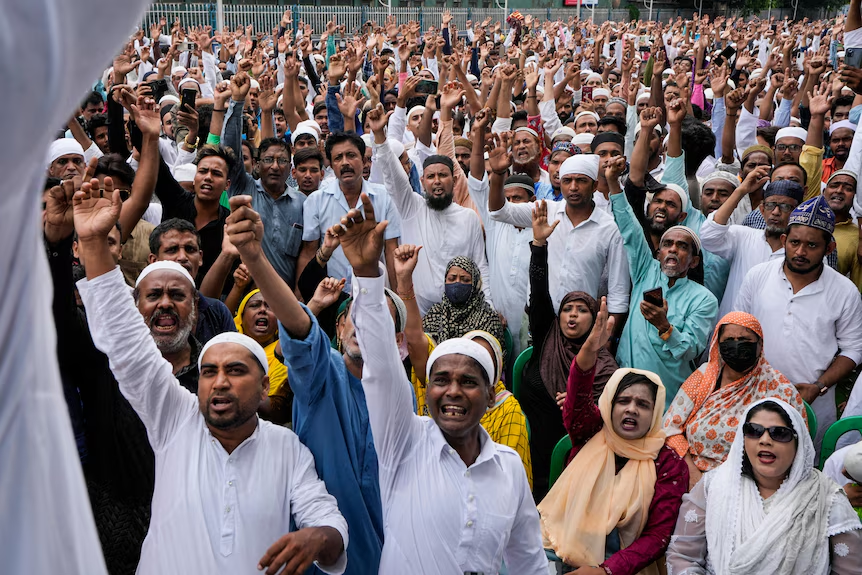Muslim Land Law
KOLKATA: Protests over a contentious new land law turned violent in parts of West Bengal, India, leading to the deaths of three people and widespread unrest, including the torching of police vehicles in the state capital, Kolkata.
The demonstrations, primarily driven by Muslim groups, erupted over legislation passed by the Indian parliament that critics argue discriminates against the Muslim community by altering the management and use of land historically reserved for Muslim purposes.
Tensions first flared over the weekend in Murshidabad district, where protesters reportedly set fire to shopping malls, attacked a Hindu residence, and stabbed two individuals. The violence prompted local authorities to suspend internet services in the area in an effort to contain the unrest and prevent the spread of inflammatory messages online.
On Monday, the situation escalated further in the Bhangar area of Kolkata when police attempted to halt a protest march. The confrontation led to clashes between demonstrators and law enforcement. Protesters blocked a major highway, adding to the chaos and disrupting transportation in the region.
The legislation at the heart of the protests introduces sweeping changes to land usage regulations concerning Waqf properties — religious endowments primarily used by the Muslim community for charitable, educational, and religious purposes. Critics argue that the new law undermines Muslim control and use of these lands, posing a threat to their historical and cultural heritage.
Muslim political parties and civil rights organizations claim that the law is part of a broader trend under Prime Minister Narendra Modi’s government to marginalize the Muslim population. They point to previous policies and actions that have sparked fears of systemic discrimination.
However, the Modi-led Bharatiya Janata Party (BJP) insists that the legislation is intended to bring transparency and reform to land management practices and is, in fact, a “pro-Muslim” measure.
The BJP has also accused the Trinamool Congress, which governs West Bengal, of appeasing Muslims to secure electoral support. The Trinamool Congress has rejected this charge, asserting instead that the central government is stoking religious divisions for political gain.
As protests continue and political blame games intensify, concerns are rising about further violence and instability in the region. Authorities remain on high alert as they monitor the situation closely.










